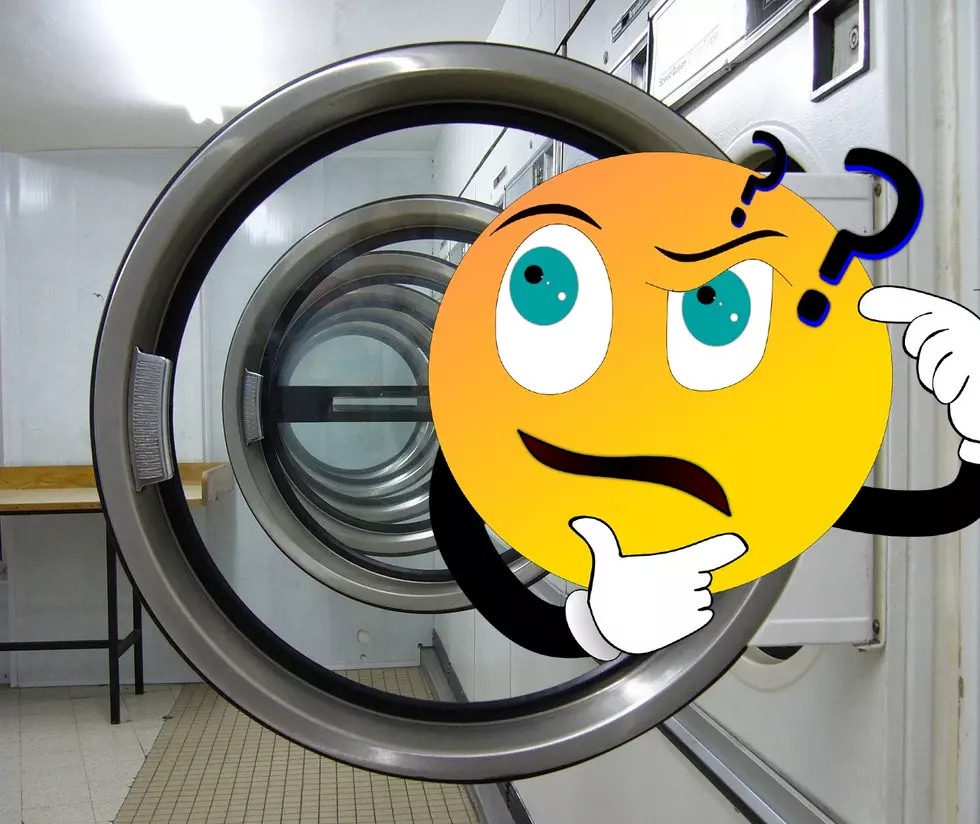
Geezer Butler Names His Favorite Black Sabbath Album Cycle + the Bassists That Inspire Him
Geezer Butler was the guest on Full Metal Jackie's radio show this past weekend. The legendary Black Sabbath bassist is currently promoting his memoir, "Into the Void: From Birth to Black Sabbath and Beyond," and he spoke about how this project evolved from wanting to pass down his story to his grandchildren to becoming something for a larger audience.
Jackie also dives into Geezer's history, getting his pick for the most rewarding album and tour cycle, learning about the moment they knew Black Sabbath had a future with Ronnie James Dio and getting his thoughts on if he will return to the stage at this point in his career. Plus, Geezer shares his pick for the bassist that inspired him and one modern day bassist who's got his attention.
Check out the chat in full below:
It's Full Metal.Jackie, I am honored to say that I've got legendary bassist Geezer Butler with us on the show. There's a lot going on, obviously I want to talk about your new memoir "Into the Void." Geezer, you've spoken about how this book was written in part to help the story of your life be passed down to your grandchildren. Once this turned into your memoir for a larger audience, did that change the approach at all as to what went in?
Well, obviously it quickly became "the grandkids can't read it until they're 18 or above now" (laughs) Originally it was just a memoir to them. And then Gloria read what I'd written and she said, "Oh, you gotta do this as a book. And so obviously when I did it as a book, I put all the Sabbath stuff in and the naughty bits and things. So, they haven't read it and they're not gonna see it until they're 18 .
Exactly. Right. At least 18. Are they aware of it? Did you say, "Hey, someday you'll get to read my story?"
Oh yeah. My grandson Guy who's 10, he saw me autographing one of the books and he picked it up and he says, "Oh, can I read this ?" And I said, "Yeah, when you're 18."
And as young kids, do they have any idea, "Hey, my grandfather is Geezer Butler from Black Sabbath. Do you feel like they have any sense of the magnitude and your legendary status and or is it just like, "Oh, that's my grandpa?"
Well, yeah, it's usually, oh, that's my grandpa. But my oldest granddaughter Lena did a rendition of "Iron Man" at her school cause she plays guitar and sings and so she definitely knows what it was all about. And it went over really well when she did a school concert.
That must have been a proud moment for you.
It certainly was. I was a bit apprehensive at first cause I thought that the other parents might object to having a Black Sabbath song in a Catholic school. But they were great. Everybody loved it.
Geezer, you've spoken about the Never Say Die album being your least favorite experience with Black Sabbath. For you both as a musician and on a personal level, what was the most rewarding album and tour cycle that you've been a part of?
I think for me it was the Sabbath Bloody Sabbath album. Because we had a much more relaxed time doing it. With the first two albums, the first album was done in two days. Paranoid was done in five. So you didn't really have time to relax and sit back and listen to what you were doing. And Sabbath, Bloody Sabbath, we did it a lot more slowly. It was a great time to be in Sabbath cause we'd established ourselves. We had a few quid in the bank and things were just great. It was really good. Everybody was enjoying being together. So yeah, that's brought back happy memories, that album.
What stood out about that time that everything just connected and seemed right in your world?
It was because we took our time to experiment a bit more on that album. We were learning different instruments and things and just experimenting in the studio, which we hadn't really done before. And it was all down to us. We didn't have a producer so we all sort of produced it ourselves. It was a really happy time and the songs were great and it was a bit of departure from the usual Sabbath stuff that we'd done up to then. So we were really proud of that album.
Black Sabbath, "Sabbath Bloody Sabbath"
Lineup changes aren't ever easy. At what point did you feel things starting to click with Ronnie James Dio and Vinny Appice now part of the band?
As soon as Ronnie came in 1980 Ozzy was gone. We had some songs that we'd written that weren't going anywhere. Ozzy wasn't really into the vocal singing on them and we had this song called "Children of the Sea" and Ronnie came in and the first thing he did was sing on "Children of the Sea" and write the lyrics for it and everything. We were just all knocked out. It was incredible and so it was brilliant.
We didn't know if it was gonna be the end of Sabbath or not cause there's so few bands back then that could replace the singer and be successful, especially somebody like Ozzy. So we were a bit apprehensive. Then when we heard what Ronnie could bring to Sabbath, we knew that we had a new future.
Black Sabbath, "Children of the Sea"
You later reunited that foursome as Heaven and Hell. What's your take on how that foursome worked together and the legacy you left musically?
I thought it was a great time. It was very democratic, that album. We all had loads of ideas. Tony [Iommi] obviously had millions of ideas and we all went to write it at Ronnie's house in Encino and it was just really relaxed.
We'd put all the past problems we'd had over the years behind us, we'd finally grown up and it was just a really relaxed atmosphere and each one of us listened to what the other person had to bring to the album. If somebody said, "No, that won't do," then it was fine. You just go into something else. We didn't have any arguments about what was gonna go on [the album]. If we all liked a song, then that is it. That's all we needed to do to put it on the album. It was a really good relaxed writing period, and recording.
Geezer, you've commented on how you consider yourself retired from touring after seeing the challenges starting fresh with Deadland Ritual a few years back. Having gone through that experience, how are the challenges similar or different to when you started out with Black Sabbath and what piece of advice would you give to new bands starting out touring?
Well I'd never give advice to a new band because, you know, they just do what they want. They don't want advice from an old bloke like me. But yeah, touring on the last Sabbath tour was perfect because we had our own plane. We could relax at the best hotels all around the world. So it was, it was easy going for me, but it was very wearing on Tony because he was still going through his chemo. So he'd be on the road for like four weeks and then have to fly back to England to get his treatment for his cancer. So it was really hard on Tony and originally that farewell tour was gonna be a hundred gigs and Tony just couldn't do a hundred gigs. So we cut it down to 81 gigs and finished in our hometown of Birmingham. So that was great the way we traveled then.
But then the Deadland Ritual thing, we were just doing like small clubs and different stages at a few festivals around Europe and it absolutely killed me. There was no airplane, it's all done by bus and I just couldn't do it.
READ MORE: Geezer Butler Shares What Black Sabbath's 'Iron Man' Is Really All About
I've been reading that Black Sabbath was approached about playing the Power Trip festival and obviously, you’re retired from touring. We've all read what you've said in terms of the future and where you're leaving things. But are you closing the door completely or, if the right situation all around presents itself, do you think that you guys would perform together again as Black Sabbath?
Maybe a one-off, a two-off or whatever. I did the Foo Fighters thing last, when was it last year or something? That was a one off thing. I enjoyed that, but if it was one-off and it was the right thing to do, then I'd do it. We had a chance, I had a chance last summer when Tony and Ozzy closed the Commonwealth Games in Birmingham in England and they asked me to do it and I'd agreed to do it, but unfortunately I got Covid so I couldn't travel so they had to get Adam Whiteman, who's the keyboardist in to play bass.
Geezer, David Draiman of Disturbed was recently asked for his Mount Rushmore of musicians and he didn't hesitate to name you for his all-time bassist pick. As someone that many bassists aspire to, which players have inspired you the most over the years and is there anyone of today's generation of bass players who has caught your ear?
For me it is Jack Bruce when he was in Cream. I saw Cream three times in the late '60s and the first two times I was standing in front of Eric Clapton cause everybody was saying, "Oh, you gotta see this guitarist guy. He's incredible." So I went to see Cream and I stood in front of Eric Clapton and he was absolutely brilliant.
Then, on the third occasion, I thought, "I'm just standing in front of the singer," which is Jack Bruce and I couldn't believe what he was doing on bass and I thought, "Oh my God, that's incredible." He's playing rhythm and lead guitar at the same time on bass while he’s singing. So he was immediately like my ultimate hero bass player those days.
I like the guy [Mike Kerr] in Royal Blood. I like what he is doing on bass, but I can’t single out anyone in particular, I mean I like all bass players.
Our thanks to Geezer Butler for the interview. His memoir, 'Into the Void,' is available now and you can pick it up here. You can keep up with Geezer via his Twitter, Facebook and Instagram. Find out where you can hear Full Metal Jackie's weekend radio show here.





